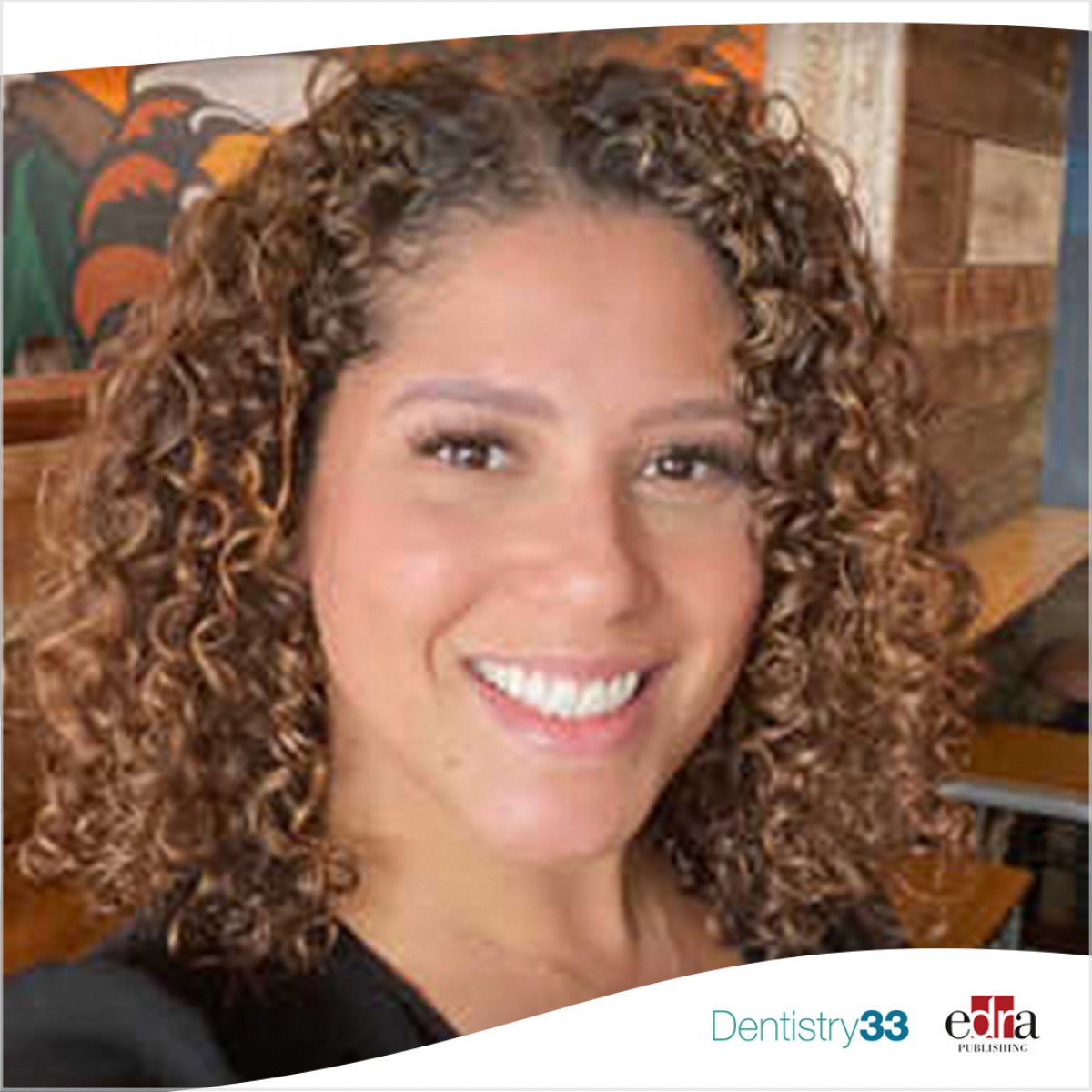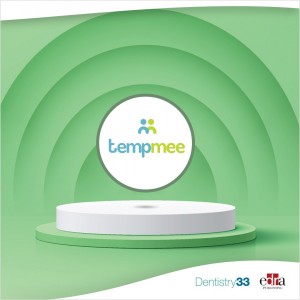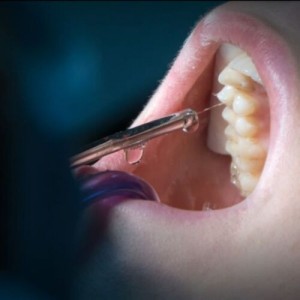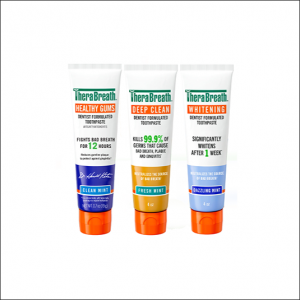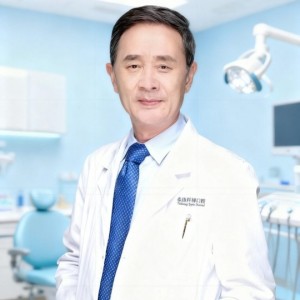
Jenelle Johnson, dental hygienist: ‘If you find a technique that really works for you, go with it’
Mary Guiden
Jenelle Johnson is a registered dental hygienist at Vero Dental in Denver. She has a bachelor’s degree in health care management and healthcare from MSU Denver and an associate degree in dental hygiene from Iowa Western Community College. As part of Dental Hygiene Awareness Month, she recently talked with Dentistry33, sharing her favorite tips for patients and advice for anyone interested in becoming a hygienist.
Q: What is your favorite advice for patients?
A: Number one – having a rechargeable electric toothbrush is key. That is one of the easiest things you can do for dental hygiene to improve oral health and decrease time spent in the dental chair. You can get a decent electric toothbrush at a cost of $50 to $150. It is an investment, and it will last a minimum of four years. If you divide the amount of money you are spending on that versus the life of the toothbrush, it is going to make an enormous difference.
It’s hard for some patients to start flossing or to brush regularly. One of the ways I make it more approachable for patients is to not to make them feel guilty or overwhelm them with suggestions or changes they should make. Meet your patient where they are and make small goals with them that they feel are attainable. Encourage patients to maintain a consistent routine and stay positive.
Usually for the first two to three weeks after a dental appointment, a patient is enthusiastic. It takes about that amount of time to clear up gingivitis, so I suggest that they try their best to floss daily for the next two to three weeks. Once they find themselves falling off, try to floss at least every other day to clear up the gingivitis. If they are going to skip days, they need to do a very thorough job when they do floss. If you keep flossing every day, good for you!
One of the things I’m really good at as a hygienist is educating patients. I show patients what changes to look for in their gums and sometimes I will show them a picture of healthy gums compared with unhealthy, so that they have a visual.
Q: What made you decide to become a hygienist?
A: I am an outgoing people person, and I became a hygienist because I like helping people improve their health. A lot of people in my family are in nursing, so choosing a career in medicine and helping people is something I naturally gravitated towards.
Q: What is your biggest challenge as a dental hygienist?
A: It is hard when you have a patient that has not been to the dentist in a long time. Their gums are sore, and you need to let them know you are not there to hurt them. You keep patients comfortable while still doing your job. I reassure my patients: If we get this cleaned up, it will be better next time. You will not have an uncomfortable cleaning like this again.
Make sure your patients know they can communicate with you. I always tell patients to raise their hand if they have any discomfort and I let them know that I will try my best to accommodate them to make it more comfortable. If their gums are really sore, we can offer them a numbing rinse or a gel that we can put in the pockets around their teeth.
Q: What technologies do you find most helpful?
A: Although it isn’t new, I have been surprised to find that the ultrasonic is still new to some patients. I explain to them that it will make their cleaning easier.
At Vero, we also use the iTero scanner that makes a 3D image of a patient's mouth. With the iTero scanner they can easily see caries, cracks in the teeth, recession and a simulation of what their teeth will look like if they want to get Invisalign. If you can show patients the buildup on their teeth or a crack in their tooth, it can really help patient education and treatment acceptance. A picture speaks a thousand words, as the saying goes.
Q: What technology could you use that does not exist?
A: If we could make x-rays more comfortable, that would be the number one thing. I would be retired by now if I had come up with a solution to that.
Q: What advice do you have for someone considering a career in dental hygiene?
A: Some dental hygiene programs can be intense. Overall, I would suggest keeping up on studying because you will be learning a lot of new information really quickly. It can definitely be overwhelming. One of my biggest suggestions is to make flashcards as you go and keep them to use later to study for boards. You’ll be glad you did that. Use relaxation techniques that work best for you- they will be helpful during these intense studies.
Once you become a dental hygienist, keep up to date on your continuing education. You will learn about new techniques and products that will ensure you are providing your patients with the best care possible. I always leave CE classes feeling excited to share and implement what I’ve learned.
Q: What else would you like to share about dental hygiene?
A lot of hygienists still polish last; that’s what we learned in school. If a patient asks why I’m polishing first, I let them know polishing and flossing removes two-thirds of the bacteria and plaque that needs to be removed, so it can make the cleaning easier for them. I always give my patients a logical explanation for why I’m doing things. Be prepared to explain what you're doing to your patient so that they can have confidence in you.
I polish everywhere to remove stains and plaque and then floss. This way, when I follow up with the ultrasonic to remove the remaining stain and calculus, the subgingival plaque is already loose and more easily removed.
Next, I scale. Since most of the deposits have already been removed from the teeth, the amount of scaling that needs to be done is decreased, which makes the procedure more comfortable for the patient. As a final step, I’ll do a touch up of polish over areas that had heavier buildup. The result for my patients is beautifully clean teeth.
Learn more about dental hygiene on the American Dental Hygienists' Assocation site: https://www.adha.org/national-dental-hygiene-month
 Related articles
Related articles
News 08 August 2025
New Interactive Map Designed to Streamline Licensure Guidance for Dental Hygienists
ADHA and CareQuest Institute partner to launch comprehensive tool consolidating key information to improve navigation of state requirements.
Products 30 January 2025
Concorde Career Colleges and Imagen Partner to Empower Dental Hygienists of Tomorrow
Concorde Career Colleges recently announced a workforce solutions partnership with Imagen Dental Partners to address the demand for dental hygienists in California.
Products 12 November 2024
PDS Health, a leading dental and medical support organization, proudly recognizes National Dental Hygiene Month, a time dedicated to honoring the vital role and impact dental hygienists have in...
Editorials 03 November 2023
Presto Smile, a leading innovator in dental technology, is thrilled to announce the upcoming launch of its proprietary AI-powered platform in January 2024. This groundbreaking development will assist...
Celebrated each October, National Dental Hygiene Month honors the work and dedication of registered dental hygienists (RDHs) while raising awareness for oral health.
 Read more
Read more
Editorials 10 October 2025
With proud smiles and crisp white coats, ninety-three learners from the DDS Class of 2029 and the International Dentist Pathway Class of 2028 marked the start of their dental careers at the UCSF...
Periodontology 10 October 2025
Continuous professional development (CPD) in Periodontology refers to the overall framework of opportunities that facilitate a life-long learning practice, driven by the learner-practitioner and...
TheraBreath, the #1 alcohol-free mouthwash brand in the U.S.*, has introduced a new line of dentist-formulated, clinically tested toothpastes designed to support professional oral care...
News 10 October 2025
New officers and trustees were installed at the Minnesota Dental Association’s Leadership Conference on September 19 in Minneapolis.
News 10 October 2025
Smartee Denti-Technology today announced that Professor Gang Shen, its Chief Scientist and Executive President of TaiKang ByBo Dental, has once again been named to the World’s Top 2% Scientists...


